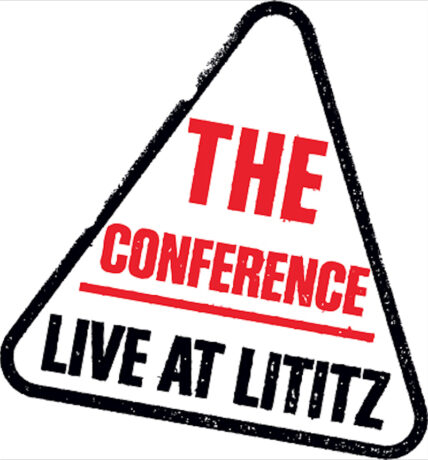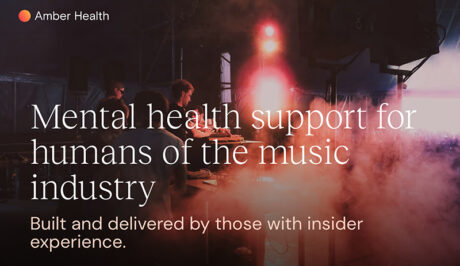
At the recent THE Conference: Live at Lititz, there were a range of sessions on mental health and wellness presented by various organizations that support touring music. One of the panels that I attended was moderated by Tour Manager Marty Hom, who is a skeptic turned proponent of using mental health support services on tour. I had a chance to speak with Hom, as well as Dr. Chayim Newman, Co-Founder of Amber Health—who provides mental health support for people in the music industry. I wanted to keep this conversation about mental health and wellness in our industry going in PLSN and plan to revisit the topic throughout the year. Please feel free to drop me an email if you have any questions or have something to add to this important conversation. You can reach me at: meddy@timelesscom.com.
Talk about what made you a proponent of mental health support for touring and how you did that on a recent tour.
I was indeed a skeptic but decided to try it on a tour this past year. We had to utilize mental health and wellness experts and therapists to come in and console our people. One of our beloved crew members got in a serious accident and was severely injured. I went to management. I’m not a health expert, they’re not health experts. I said, ‘We really need to bring in people who understand and are experts in this.’ They gave me their blessing and 100% support. A team from Amber Health was in the next city the next day. They brought three therapists. We scheduled counseling sessions and then instituted a 24/7 hotline that people could call in and use. We also continued the program bringing out three therapists every two weeks so that people could sit down and talk to someone that was neutral, that was not associated with the tour and not a friend. The hard part about touring is we’re with each other 24/7, so sometimes you need that independent person that could just talk to you just as an independent, non-biased, non-judgmental person.
Will you arrange these services on your future tours?
Look, it’s not for everyone. I think when you have a relatively young crew and artists, and that was what we had, people who never toured before, I think you have to offer that support. You have to if you are going to make it through the tour successfully. To be quite honest with you. I think it’s a positive thing. I think as the industry evolves, there’s things that we have to address. How do we make our industry better? If you expect to recruit and engage younger people into our industry, they’re going to need support. Support that we never really had to deal with in the past. But I think moving forward, we need to look at it.
If you have a fellow tour manager who is skeptical, how do you convince them to come around and see the need?
You know what? That’s hard, because everybody’s going to form their own opinion. You’re always going to see skeptics. Look, I was one, but I had to see it with my own eyes. I think it always comes down to money, right? What’s it going to cost to get support? To provide the service? The only thing I could say to someone is, ‘Try it and see if it works for you.’ Some guys in our industry aren’t even going to try it. What I’m hoping is that younger production managers and tour managers see the value in this, but the bottom line is that you’re providing a service that will help people. I think younger people are more open to it versus older people like myself.
Talk about the importance of tour management, the artist’s camp, and department heads being on board with this plan to bring in mental wellness support.
On our tour it was all embraced by everybody. It started with management. They embraced and endorsed it. They helped pay for it, obviously. When we had that accident, we met with everyone and said, ‘Look, we’re going to provide this service. I think it’s an important service.’ Most importantly it means you’re doing something to take care of people on the tour, which is a huge morale booster. At least you’re providing a service. Whether they use it or not is up to them, but just the fact that you care about these people enough that you provide this service says a lot.

What are some practical steps as a manager can you take to ensure better mental wellness on the road?
For my next tour with a younger artist, I’m having Amber Health come out at the beginning during production rehearsals. I’m going to have them meet everyone, probably one with the crew, then one with the artists, the band, and dancers, etc. saying, ‘Look, we’re providing this service to you.’ The problem is there’s not really a lot of data on this because tours have just started to implement this in the last few years. I want to let everyone know that we’re going to provide this service and it’s available, and then I’ll look at the data and see if it’s being used.
There should be no stigma to having mental health services on a tour. It should be as normal as any other department.
We say all the time, our goal has always been to make this a normal as catering.
Tell us a little about why you founded Amber Health.
Amber was founded by myself a clinical psychologist and Zack Borer a therapist, a licensed marriage and family therapist. Both of us came from the industry. I’d worked on the festival side; he was a touring musician and songwriter. Both of us watched people struggling and suffering and were keenly aware of the stresses and stressors in this industry. There’s not only a lack of support within the industry, but a lack even outside of the industry. Just a lack of understanding among clinicians of how to take care of the people in this industry and the unique dynamics, challenges, personalities that show up in this industry. Both of us pivoted to pursue careers as clinicians working in private practice, but we were helping 50 people a year as a therapist, but there’s 150,000 in this industry. This past year, just over 6,000 crew members and touring people received support through Amber Health, which is wild!
Talk about your model and how it works.
We have a unique model. We work with tours; we work with festivals; and we work with big companies in the industry. Every person that’s on our team, whether they’re a clinician or on the operations side, comes from the industry originally. So, everybody gets it. Everybody speaks the language and has had the experiences. It makes such a difference working with this population rather than taking civilians and trying to train them.
What are some of the issues your services address?
We largely deal with three categories of challenges. One is related to the tour—personality dynamics and tensions that happen on the road between crew members, between departments, between crew and artists. The stress of being away from home is challenging. The stresses of not sleeping well. The second is people who are just carrying stuff from their personal life; you come into a tour carrying your life with you. Family things, relationship things, financial struggle, just life stresses, trauma histories. That stuff’s going to impact how you show up on tour, how you do your work, how you engage with other people. Oftentimes it might be nothing to do with the tour. It’s a place for people to get support on some of the other components of their life, which maybe they’ve never really had a chance or couldn’t afford to address. The third is they deal with a lot of crises, right? As crises show up on tour and things happen, very serious things sometimes. We are the backstop for that. In this way when there is a crisis, instead of suddenly at that point scrambling to try and find someone, or a team to provide emergency support, it’s like, ‘Great, we’re already there. We already know all the people,’ and on an average tour, we will see more than one crisis usually.
What do you say to someone who’s skeptical about buying into this support?
I say, with good reason, it’s something they’ve never done before. This is a big shift. This is going from something that’s never been done before, never been available, never been accessible on a tour, to now suddenly it is. And it’s not cheap. It’s not radical. I mean, if you look at the budget lines on a tour compared to most of the other expenditures, it’s cheap, but it’s not zero. For quality care, it requires us to be able to pull quality clinicians to provide support, and that costs money. So, tours that aren’t used to having a line item in the budget for something like this. It’s understandable that people at first are skeptical.
One thing that’s important, that we always stress, is traditionally people will invest in support for the artist. If an artist is struggling, management will have no problem throwing money at taking care of an artist. For crew, who often are freelance employees, they work for themselves. They often don’t have benefits. They are seen as replaceable. In some ways, while we love working with artists, our heart, more than anything else, is that we really want to be able to serve the crew members who often have never got a chance to actually get support. They’re the overlooked life’s blood of this industry. I think it’s really a meaningful thing from our perspective to be able to support the people that really do the lion’s share of the work that makes this industry run, but often don’t have a chance at all to get the support they need. So, some of the most meaningful things are being able to serve those human beings. I always like to just highlight that aspect.
Founded in 2020 by Dr. Chayim Newman and Zack Borer as an expansion of their work with music industry professionals, Amber Health provides comprehensive, evidence-based mental health services for all sectors of the music industry, highlighting the human experience of those who work in it. The Amber Health team consists of licensed professionals: mental health clinicians, certified trainers, nutritionists/dietitians, and health experts, all who have spent extensive time within the music industry and understand its unique environment. Further information from Amber Health: www.amber.health


